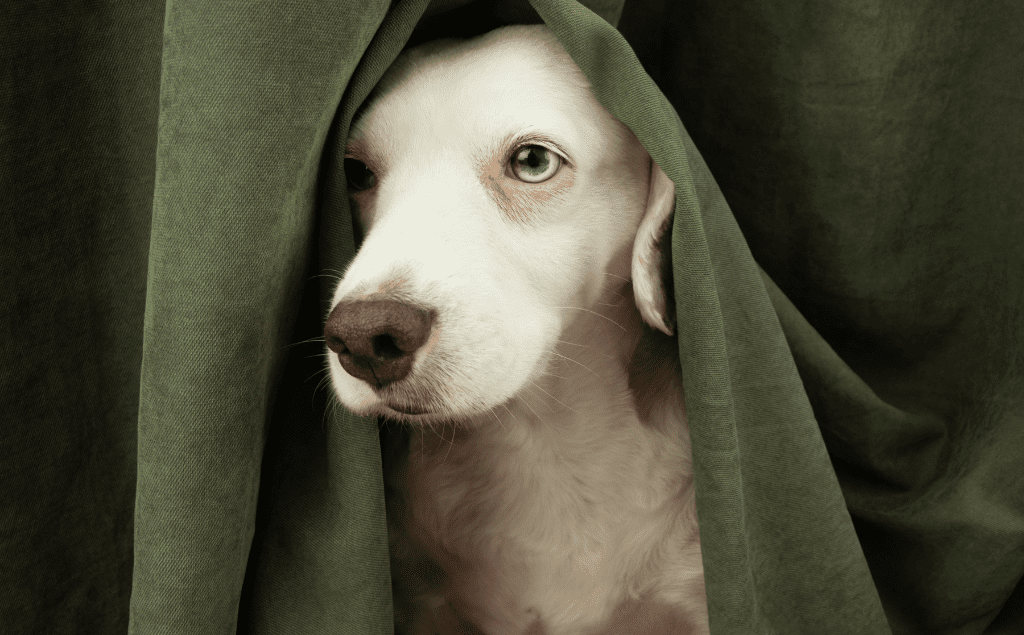Is Your Dog Scared of Fireworks? Here’s How to Help
Fireworks are often the highlight of holidays like the Fourth of July and New Year’s Eve. But for dogs, these dazzling displays can feel more like a nightmare than a celebration. If your dog trembles, hides, or acts out during fireworks season, you’re not alone—and there’s good reason for their distress.
Understanding why dogs fear firework displays is the first step toward helping them cope. With the right mix of preparation, compassion, and sometimes professional help, you can make these events less stressful for your four-legged friend.

The Science Behind Firework Fear in Dogs
Dogs are wired to be acutely sensitive to their surroundings. Fireworks, with their sudden, loud, and unpredictable booms, trigger multiple biological and psychological alarm bells for our canine companions. Here’s why:
- Superior Hearing: Dogs can hear frequencies up to 65,000 Hz, far beyond the human range of about 20,000 Hz. They also have 18 ear muscles (we have just 6), allowing them to detect and locate sounds with incredible accuracy. Fireworks, to them, aren’t just loud—they’re physically overwhelming.
- Unpredictable Nature: Fireworks explode without warning and in irregular patterns. Dogs can’t anticipate when the next boom will occur, keeping their nervous systems in constant fight-or-flight mode.
- Evolutionary Instincts: Loud noises historically signaled danger in the wild. Even today, dogs’ survival instincts kick in when they hear explosive sounds. The result? A flood of cortisol, the stress hormone, leads to elevated heart rate, blood pressure, and even gastrointestinal distress.
In short, fireworks can feel like a full-blown panic attack for a dog, with no way of understanding it’s just part of a celebration.
How to Tell If Your Dog Is Afraid of Fireworks
Not all dogs react the same way, but there are common signs of firework anxiety:
- Trembling or shaking
- Hiding under furniture or beds
- Excessive barking, growling, or howling
- Pacing or restlessness
- Destructive behavior, such as chewing or scratching
- Urinating or defecating indoors
- Trying to escape
If your dog exhibits any of these signs, they are likely to experience fear and stress. Fortunately, there are proven ways to help them manage it.
How to Calm Your Dog During Fireworks
1. Create a Safe Space
Set up a quiet, comfortable area, often called a “den,” where your dog can retreat during fireworks. Choose an interior room like a bathroom or basement, and stock it with soft bedding, familiar toys, and calming scents. Use white noise, music, or TV to help mask outside noise.
2. Feed and Play Before the Show
Try to give your dog a full meal before the fireworks begin. This may help them feel relaxed and stabilize their energy levels.
Additionally, schedule a play session or walk beforehand to burn off anxiety and release calming endorphins. Pairing positive activities with fireworks time can slowly shift your dog’s emotional response.
3. Try Compression Garments
Products like anxiety wraps or vests apply gentle, constant pressure, which activates calming responses in the nervous system. They’re a simple, non-invasive way to soothe your dog during stressful times.
4. Ask Your Veterinarian About Medication
For some dogs, fireworks cause severe anxiety that cannot be resolved through environmental changes alone. Speak to your vet about medication options such as trazodone, alprazolam, or dexmedetomidine.
Your vet may also suggest natural supplements or calming treats. Always consult a professional before introducing any new treatment.
5. Start Desensitization Training
Behavior modification, especially desensitization and counterconditioning, can provide long-term relief from fireworks anxiety. Start by playing firework sounds at a very low volume, gradually increasing the volume while pairing the sound with treats or play.
For severe cases, work with a certified dog trainer or behaviorist. This professional guidance is especially important if your dog is too anxious to accept food rewards at first.
6. Never Punish Anxiety Behaviors
Responding to fear-based behaviors with punishment can worsen the problem. Instead, offer comfort and reassurance. Your calm presence can go a long way in helping your dog feel secure.
Your Compassion Can Make the Difference
Fireworks may be fun for us. However, to a dog, they can be a terrifying experience rooted in their biology and evolutionary history. Dogs don’t understand that fireworks are harmless—they view them as a very real threat.
By preparing ahead of time, creating a safe space, using proven calming strategies, and seeking professional help when needed, you can make these holiday nights less traumatic for your pet.
Remember that being present and prepared is the best way to support your dog. Don’t wait for panic to set in; plan, stay close, and comfort them through the chaos.
Emergency Vet Help Is Always Available
If your dog experiences extreme anxiety, physical symptoms, or injury during fireworks, don’t hesitate to contact Emergency Veterinary Care Centers (EVCC). Our experienced emergency teams are here to help your pet feel safe, comfortable, and cared for.
Recent Posts
About Us
At Emergency Veterinary Care Centers (EVCC), we know that pet emergencies are unpredictable and often stressful. That's why our team, with over 20 years of emergency and critical care experience, is ready to assist you and your pet in the toughest situations.


